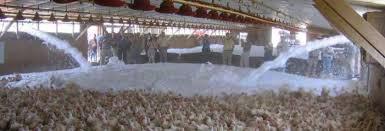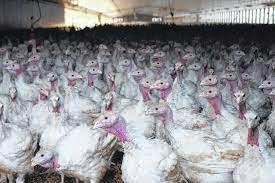The U. S. Department of Agriculture will transfer $502 million to the APHIS under the Animal Health Protection Act, in anticipation of anticipated HPAI outbreaks in the fall of 2023. Expenditures for the 2022 campaign exceeded $800 million in emergency funding. The traditional response to outbreaks of HPAI involves rapid diagnosis and confirmation, quarantine, depopulation with indemnity, disposal, decontamination and surveillance.
 At this time, USDA is advocating and promoting biosecurity functioning without a definitive understanding of the epidemiology of the infection under field conditions.
At this time, USDA is advocating and promoting biosecurity functioning without a definitive understanding of the epidemiology of the infection under field conditions.
USDA in cooperation with state partners and producers has made considerable progress in early recognition and diagnosis of avian influenza. Through the application of VSD, against which there is growing opposition, the time required to depopulate a large complex has been theoretically reduced to prevent the dissemination of virus. This is evidenced by the absence of apparent lateral infection during the 2022 epornitic despite depopulation on large complexes requiring as long as a week in duration.
 USDA in partnership with the wildlife resources of the Department of the Interior is maintaining surveillance over migratory waterfowl that introduce and disseminate virus. Additional information is required on the prevalence in domestic wild birds and also terrestrial mammals that are regarded as accidental hosts in the sequence of infection. An important question is whether avian influenza is transmitted, even over relatively short distances, by the aerogenous route. If this is a mechanism by which virus is introduced on to large, egg-production complexes as is suspected, intensification of both structural and operational biosecurity will not provide absolute protection. An epornitic in the fall of 2023, extending into 2024 or in a subsequent year will strengthen the conviction that HPAI is both regionally and seasonally endemic and will tip the scales in favor of limited, tactical vaccination.
USDA in partnership with the wildlife resources of the Department of the Interior is maintaining surveillance over migratory waterfowl that introduce and disseminate virus. Additional information is required on the prevalence in domestic wild birds and also terrestrial mammals that are regarded as accidental hosts in the sequence of infection. An important question is whether avian influenza is transmitted, even over relatively short distances, by the aerogenous route. If this is a mechanism by which virus is introduced on to large, egg-production complexes as is suspected, intensification of both structural and operational biosecurity will not provide absolute protection. An epornitic in the fall of 2023, extending into 2024 or in a subsequent year will strengthen the conviction that HPAI is both regionally and seasonally endemic and will tip the scales in favor of limited, tactical vaccination.